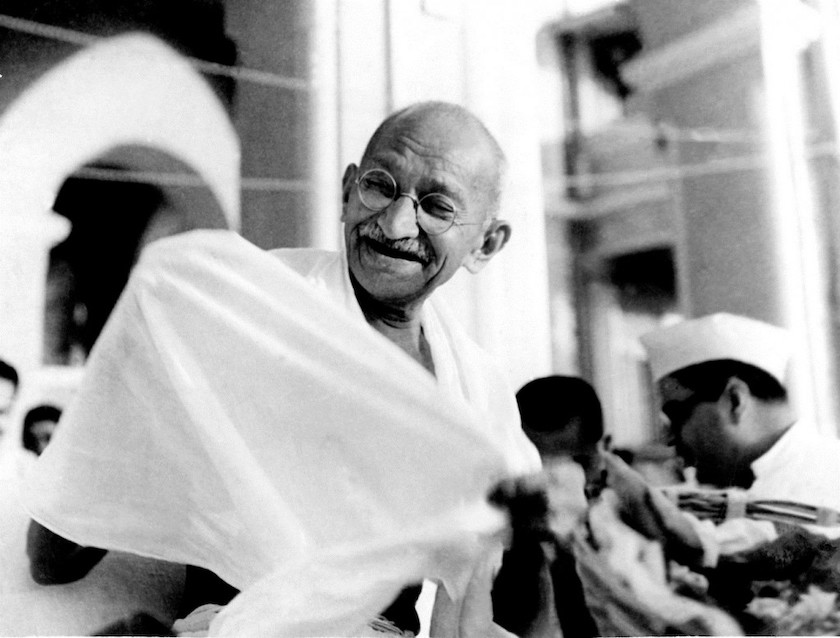Genuine authority is not a question of rank, but of exemplary behavior, for leadership is based more on imitation than on subordination. We could save ourselves a lot of resistance, struggle and suffering in our daily life in organizations and families if we ourselves authentically represented the change we want to see in our environment. Only those who can lead themselves so sincerely can lead others through their example.
Be the change you wish to see in the world!
There is this story about Mahatma Gandhi and though it is not verified it is no less inspiring. A woman came from far away with her son to see Gandhi. She was deeply worried about her son because he ate too much sugar and although he got sick from it he couldn’t stop it.
So she waited patiently for many hours and when it was her turn she said: “Please Master, tell my son to stop eating sugar”. Gandhi looked deep into the boy’s eyes and then replied to the mother: “Bring him back in two weeks.
She went home disappointed and came back after two weeks. When they stepped in front of Gandhi this time, he said, “Boy, you have to stop eating sugar.” With respect for Gandhi and his wisdom, the boy promised to stop eating sugar and led a healthy life ever since.
But the mother was confused and asked Gandhi, “Why didn’t you tell my son so two weeks ago? Gandhi answered: “Two weeks ago I ate a lot of sugar myself. I had to stop eating it first.”
An ounce of practice is worth more than tons of preaching.
Mahatma Gandhi
Leading by Example
Who would have acted like Gandhi in this story? Who wouldn’t have simply succumbed to the wish of this mother without conscious reflection of one’s own behavior? Who wouldn’t thus have given the demanded but not very authentic and therefore weak advice immediately? How do we behave every day in meetings, committees or towards our children? And how does this behavior match our intentions and words?
Example is not the main thing in influencing others; it is the only thing.
Albert Schweitzer
This age of digitalization is characterized by major changes. In order for these transformations not to evaporate as ineffective change theater, leading by example is required. No one should pretend that this is about changing others – and especially employees – while their own role and position will remain unaffected.
What you are speaks so loudly, I can’t hear what you are saying.
Ralph Waldo Emerson
Especially the agile transformation, i.e. the change towards more agility through decentralized decision-making structures in the form of self-organizing teams, is first and foremost a massive leadership transformation. Agility is not just some sort of concentrated feed with which employees can do their work faster and more flexibly, while everything else stays the same. Quite the opposite, agility is about taking a holistic view of the organization and optimizing the entire value stream. And in doing so, leadership is split into self-organization, product management and human leadership in the sense of the Manifesto for Human(e) Leadership.





